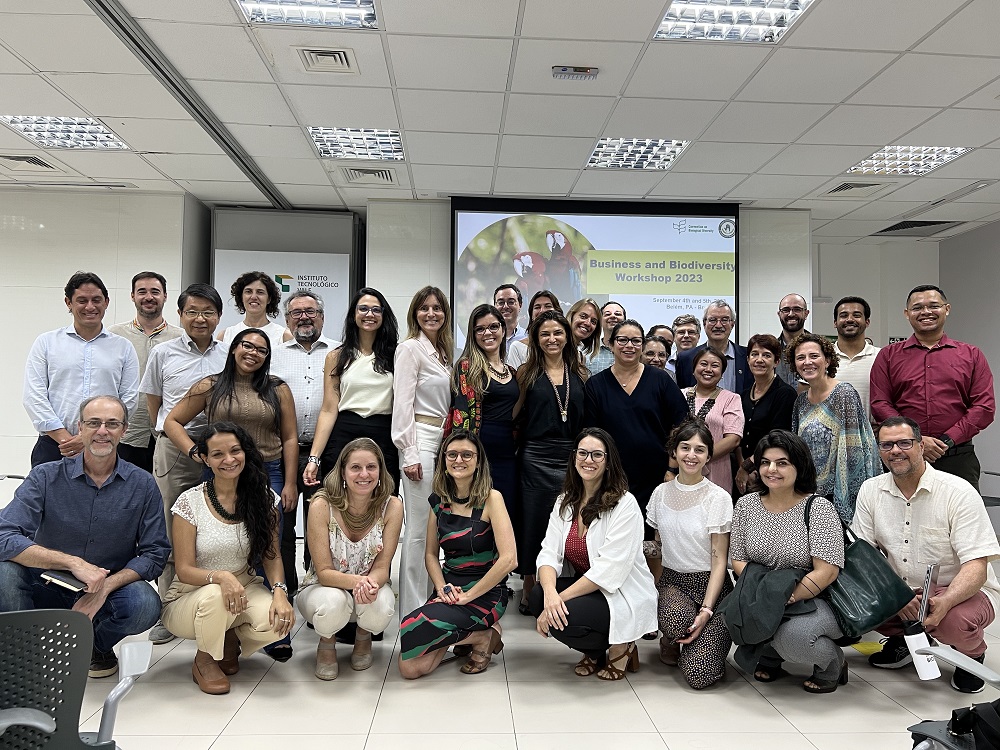
The 11th annual meeting of the Global Partnership for Business and Biodiversity took place in Belem, Brazil, at the Vale Technological Institute (ITV). The event was co-hosted by the Brazilian Initiative for Business and Biodiversity IBNBio and its founding members, the Brazilian Confederation of Industries (CNI), the Brazilian Business Council for Sustainable Development (CEBDS) and Instituto LIFE.
This gathering served as a platform for various initiatives to showcase their on-ground efforts in assisting local governments with the revision of their National Biodiversity Action Plans (NBSAPs). Moreover, it provided an opportunity for participants to share new and exciting projects they are currently engaged in.
Over the weekend, participants had an opportunity to visit a traditional community in the Amazon to learn about their relationship with the standing forest and how they are managing to secure their livelihood while protecting the forest. The activity was organized by Natura & Co. and included a visit to a cooperative where many of the raw materials are processed and sold to different companies for the manufacturing of cosmetics, food and medication.
Subsequently, the 2023 Workshop on Business and Biodiversity unfolded. Over the course of two days, the Global Partnership for Business and Biodiversity collaborated with the Brazilian Business and Biodiversity Initiative to host a series of panel discussions. These discussions focused on several vital themes, including the role of the private sector in supporting NBSAPs, the potential of bioeconomy, mainstreaming biodiversity across economic sectors, tools for measuring impacts, and incentive measures for the conservation and sustainable use of biodiversity.
Amidst the rich discussions that transpired over those two days, a prominent message emerged: successful outcomes will hinge on collaboration across sectors and among diverse stakeholders.
The final session of the workshop centered on a dynamic discussion that included representatives from companies, financial institutions, civil society, academia, and government. The focus was on the role of the private sector in supporting implementation, and participants explored potential recommendations and solutions to contribute to the political process. This productive exchange will culminate in a joint publication featuring input from various countries and is expected to be ready for release during COP16.
Agenda of the Meeting
Presentations